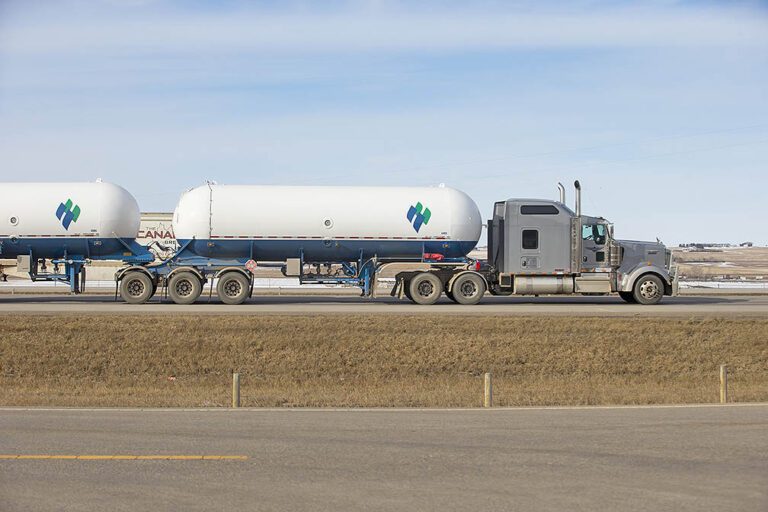FORT WAYNE, Ind. — The North American Council for Freight Efficiency (NACFE) recently released the newest Confidence Report titled, “Natural Gas’ Role in Decarbonizing Trucking.”
The report focuses on using natural gas as a fuel source and the potential it has to not only reduce greenhouse gas emissions.
“CNG (compressed natural gas) and RNG (renewable natural gas) offer a lot of benefits as we decarbonize the transportation industry; however, there are challenges. Each fleet must assess all of these to be assured it is the right solution while in the messy middle,” said Jeff Seger, NACFE’s clean energy consultant.
The report concludes with nine key findings about natural gas engine use in commercial vehicles:
- There appears to be a wide range of perceptions and results regarding the business case for natural gas.
- There are several positive environmental aspects of natural gas engines.
- There are environmental concerns with natural gas.
- Sustainability goals, regulations, and the California conundrum are considerations.
- The new 15-liter Cummins X15N engine seems promising.
- After treatment, it is simple and more reliable.
- Natural gas is very abundant in the U.S.
- There is a question as to whether there will be an ample supply of renewable natural gas.
- Because of economics and the environment, there are a few points to consider when comparing battery-electric vehicles and compressed natural gas.
The report provides an overview of the various types of natural gas and details fleets’ experience using natural gas fuel for their medium-and heavy-duty trucks. It also looks at available natural gas engines and truck makers that are offering a natural gas option in their product portfolios.
“Natural gas engines need to be looked at as part of the ‘messy middle,’ so fleets can decide if they want to invest in it considering other powertrain options,” said Mike Roeth, NACFE’s executive director. “It has its pluses and minuses, but it does produce less CO2 per unit of energy on a full-comparison basis compared to No. 2 diesel fuel.”
Although natural gas has been used in combustion engines for decades, a renewed interest in using it in the transportation industry has become a more extensive topic of discussion. Transportation companies have noticed that renewable natural gas is a lower-carbon fuel than regular diesel and cleaner burning than diesel. In particular, corporate leaders are looking at renewable natural gas because of its potential negative carbon intensity when the feedstock is animal waste.
Born and raised in Little Rock, AR, Erica N. Guy decided to stay in her hometown to begin her professional career in journalism. Since obtaining her bachelor’s degree from UAPB, Erica has professionally written for several publications about several topics ranging from lifestyle, tech, culture, and entertainment, just to name a few. Continuing her love for her hometown, she joined our team in June 2023, where she is currently a staff writer. Her career goals include continuing storytelling through her writing by being the best professional writer she can be. In her spare time, Erica enjoys trying new foods, cozying up with a good book, spending time with family and friends, and establishing herself as a future businesswoman.








